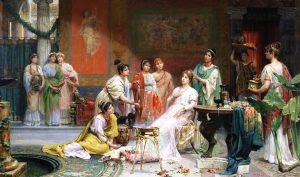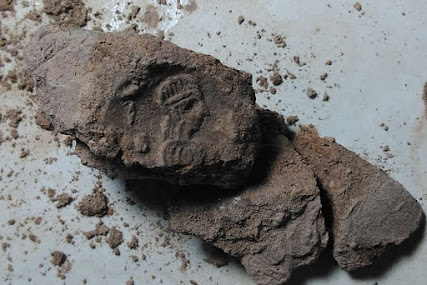From Live Science:
Women in ancient Rome held very few rights and by law were not considered equal to men, according to a 2018 article on The Great Courses Daily. Roman women rarely held any public office or positions of power, and instead their role was expected to be caring for children and looking after the home.
Most women in Roman society were controlled by either their father or husband. Especially among richer families, women and young girls were married off in order to form political or financial relationships, and rarely could choose their partner.
Despite this lack of rights, there is evidence of a few exceptional women who managed to attain great power and influence in ancient Rome. While some controlled events from the sidelines, others took matters into their own hands, forming conspiracies and even assassination plots to seize control of the Roman empire.
read more here @ Live Science




